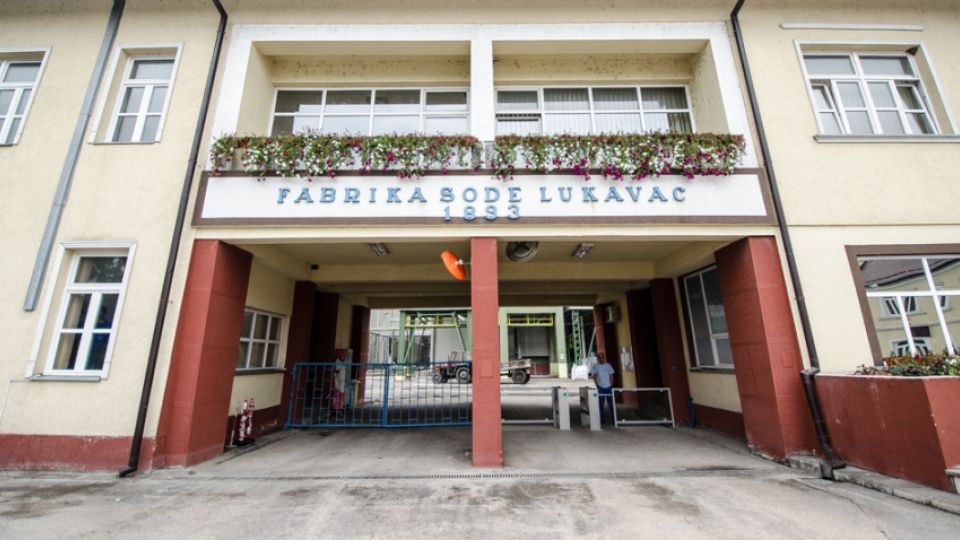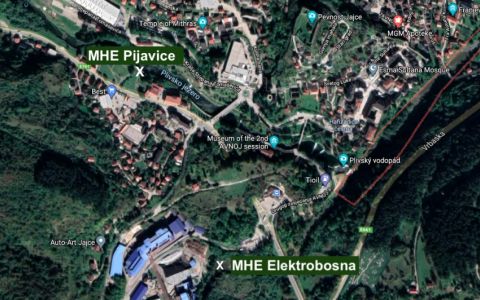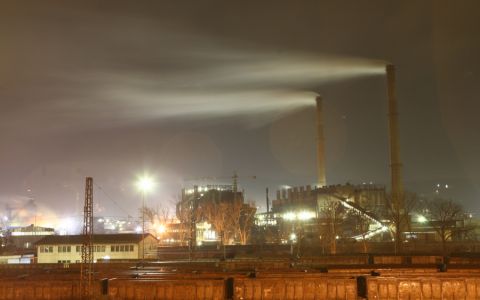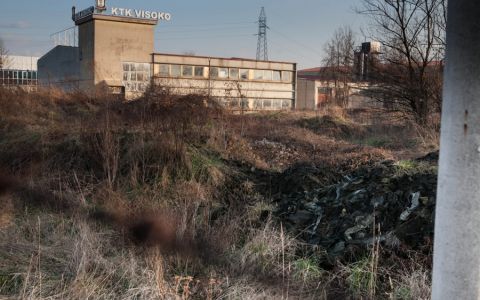Lukavac, a town of 50,000 in central Bosnia, is one of the most polluted places in the industrial heart of the country. A coke plant, cement kiln, tailing ponds, coal mines, and hazardous waste landfill – these are only few examples of heavy industries that can be found in the area. The worst of the worst, strewing the city with tons of emissions every day, used to be the soda factory. Often in the morning, the whole town was covered in a layer of black dust. As there were no air pollution monitoring stations, the inhabitants could only guess the extent of the air pollution – although a bad smell hinted that the environment of the city was probably not very healthy.
The town itself emerged in 1893, when in the distant, free, uninhabited area of the Spreča River valley the foundations of the "First Bosnian Ammonia Soda Plant" were laid. The industry grew fast, as did the number of inhabitants of the town – and the amount of pollution.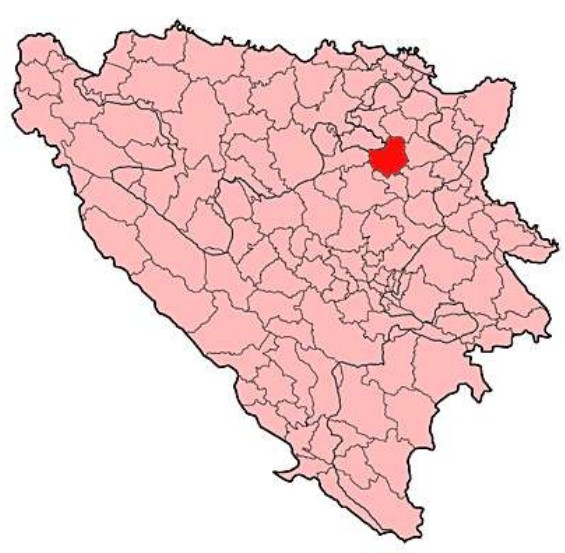
It is hard to say that the politicians and officials did not take care of citizens at all. Maybe due to laziness, maybe incompetence, the town did not buy any air pollution monitoring system and decided to borrow some from more equipped private companies or state institutions in the canton. Unfortunately, they were not feasible more than twice per year. It is obvious, that random data was useless for any practical actions to protect public health.
Marching against dust
Similarly as in other towns in central Bosnia that time, people were technically living most of the year in alarmingly concentrated smog, but unaware of it. The only accessible source of data on air pollution was reports of the Cantonal Ministry of Spatial Planning and Environmental Protection – which is not an easy accessible source. Frustration of the locals culminated in a protest march in 2010, where approximately 3,000 people marched to the gate of the soda factory. Citizens demanded access to accurate information on environment in the town and placement of information board showing current levels of air pollution in the street. They also demanded that the company installs electric filters and that the town establishes an ´Environmental Permits Supervisory Council´, which would involve one representative from the public.
Recovered foreign investments
At the time, the factory was already privatized and made a part of international Turkish-owned corporation, Sisecam. Its managers were frightened by possible damage of the company's goodwill in the international market, and started to act. Within just one year, an amount of more than 60 million euro was invested in advanced production technologies and environment protection facilities. In 2011, Sisecam Lukavac ranked as the ninth biggest investor in BiH and third in terms of investment for environmental protection and energy efficiency (according to Business Gazette, 2012). Positive impact on the company's image was definitely much larger than possible saving in the operation of the obsolete factory.
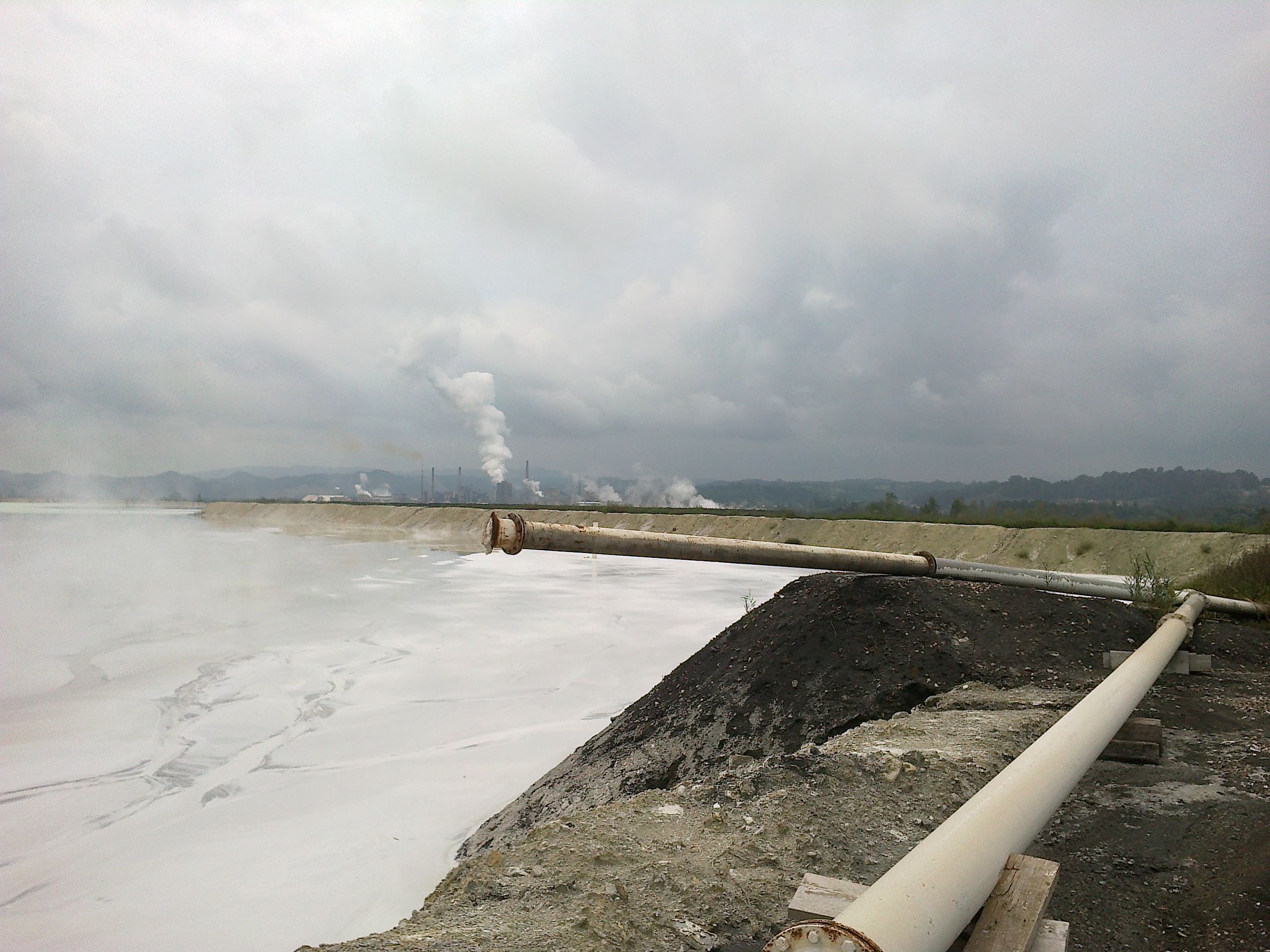
In 2012, town councillors revolted and refused to accept the annual report of the Cantonal Ministry of Spatial Planning on air pollution. The report stated that daily concentrations of pollutants in the air have not exceeded the emission limits within the year, despite several obvious accidental releases of emissions over the same time period. Thanks to this controversy, in 2014, the town´s first monitoring station has been installed. Even though the quality of air in the city substantially improved,
other consequences of soda production are still waiting to be resolved – for example, a large tailing pond called the White Sea. Also the monitoring station does not work perfectly. Anyway, the citizens got access to the real data and started to be taken as relevant partners for the debate.
________________________________________
Due to constant complaints of the citizens and also councillors, the canton fi nally installed air monitoring station in one of the most polluted towns. Having information is the fi rst step for being able to act. After demonstrations which attacked the image of the international corporation, the company was forced to invest in environment protection technologies. The company soon recognized that such investments helped consolidate goodwill better than anything money could buy.
________________________________________
"Soda factory was built at Austro-Hungarian Empire; it was producing during Yugoslavia, during the war and after it. The life of the town – also concerning employment – is pretty much connected with soda production. But in the last few years, people also suff ered the most due to the factory. At a certain point, we realized that we could not endure it any longer and we went out on the street. It helped. The factory management realized that there are people living around and that we have our minds, feelings and needs, but also power. Since that, their behaviour is gradually improving."
Emir Avdić,Centre for Flora and Fauna Protection Lukavac



